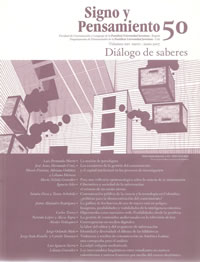Abstract
The research this paper deals with is based on a tandem linguistic experience via e-mail; an asynchronous communication that takes place between two interlocutors who speak different mother tongues and communicate in order to establish a personal relationship and at the same time practice and learn one of the languages. Our purpose is to study the effects on foreign language appropriation in the context of a long-term commitment, which in turn may be influenced by the establishment of an interpersonal relationship. Conversational analysis is used to study the communicative and interactive behaviors of both participants: the native speaker’s attempt to help the non-native toward understanding his/her messages better and improving his/her communicative competence, and the non-native speaker in his/her efforts toward appropriating the foreign language. Results show that this linguistic tandem enhances the foreign language appropriation process.This journal is registered under a Creative Commons Attribution 4.0 International Public License. Thus, this work may be reproduced, distributed, and publicly shared in digital format, as long as the names of the authors and Pontificia Universidad Javeriana are acknowledged. Others are allowed to quote, adapt, transform, auto-archive, republish, and create based on this material, for any purpose (even commercial ones), provided the authorship is duly acknowledged, a link to the original work is provided, and it is specified if changes have been made. Pontificia Universidad Javeriana does not hold the rights of published works and the authors are solely responsible for the contents of their works; they keep the moral, intellectual, privacy, and publicity rights.
Approving the intervention of the work (review, copy-editing, translation, layout) and the following outreach, are granted through an use license and not through an assignment of rights. This means the journal and Pontificia Universidad Javeriana cannot be held responsible for any ethical malpractice by the authors. As a consequence of the protection granted by the use license, the journal is not required to publish recantations or modify information already published, unless the errata stems from the editorial management process. Publishing contents in this journal does not generate royalties for contributors.


